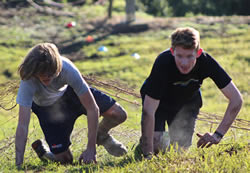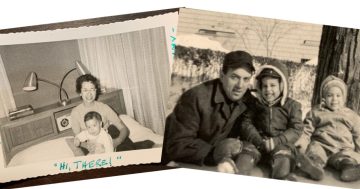Lisa Earle McLeod* says when the time gets hard we can moan about it, bottle it up or harness it as a valuable learning experience.
 When it comes to bad circumstances there are two kinds of people.
When it comes to bad circumstances there are two kinds of people.
The people who want to prove they have it worse than other people, and the people who will tell you others had it worse than they did.
I usually fall into the second group.
Telling yourself other people have it worse is a way to feel better about a bad situation.
There’s a downside: You never give yourself permission to feel your own pain.
I understand the impulse.
Talking about how bad things went for you — in childhood or other circumstances — makes you feel like a victim, it’s paralysing.
Telling yourself it could have been worse gives you confidence.
It helps in the short-term, but stuffing your feelings has long-term consequences.
In her book Braving the Wilderness, Brene Brown describes her painful experience of not making the high school drill team, the Bearkadettes.
It was something she wanted desperately — to be part of the glittering high kicking in-crowd.
When she didn’t make it, she felt her athletic parents were “ashamed of me and for me”.
She had thought the Bearkadettes would deliver the holy grail of belonging.
She writes: “I would later hear through the grapevine that I was a solid dancer but not really Bearkadette material.
“No bows. No shine. No group. No Friends. Nowhere to belong.”
Anyone who’s ever felt the sting of rejection can relate.
Dr Brown writes: “My drill team story is one that’s easy to dismiss as unimportant in the larger schedule of what’s going on in the world today.
“I don’t know if this was true, or it was the story I told myself in that silence, but that became the day I no longer belonged in my family — the most primal and important of all our social groups.
“Even in the context of suffering — poverty, violence, human rights violations — not belonging in our families is still one of the most dangerous hurts.”
She describes the three outcomes when your heart, spirit and sense of self-worth are broken.
You live in constant pain and seek relief by numbing it and/or inflicting it on others.
You deny your pain, and your denial ensures that you pass it on to those around you and down to your children.
You find the courage to own the pain and develop a level of empathy and compassion for yourself and others that allows you to spot hurt in the world in a unique way.
We all want to belong, when we don’t, it’s painful.
We can tell ourselves: I’m tough, it wasn’t that bad.
We wind up seeking outlets to numb and pass down the pain.
Dr Brown says: “I certainly tried the first two. Only through sheer grace did I make my way to the third.”
Most of us have had or have pain in our lives.
Just because others had it worse doesn’t mean your pain is not valid.
Maybe your parents didn’t beat you, they merely ignored you.
Maybe your job isn’t dangerous, it’s just soul-sucking.
Maybe you had a part in the school play, but you had to sit in the wings while the lead sang the song you’d been dreaming about for months.
The only way around pain is through it.
We all want to belong. If you experience pain and loneliness, it’s OK to give yourself permission to feel bad about it.
*Lisa Earle McLeod is a leadership specialist best known for creating the popular business concept Noble Purpose. She is the author of Selling with Noble Purpose and Leading with Noble Purpose. She can be contacted at mcleodandmore.com.
This article first appeared on Lisa’s blogsite.











